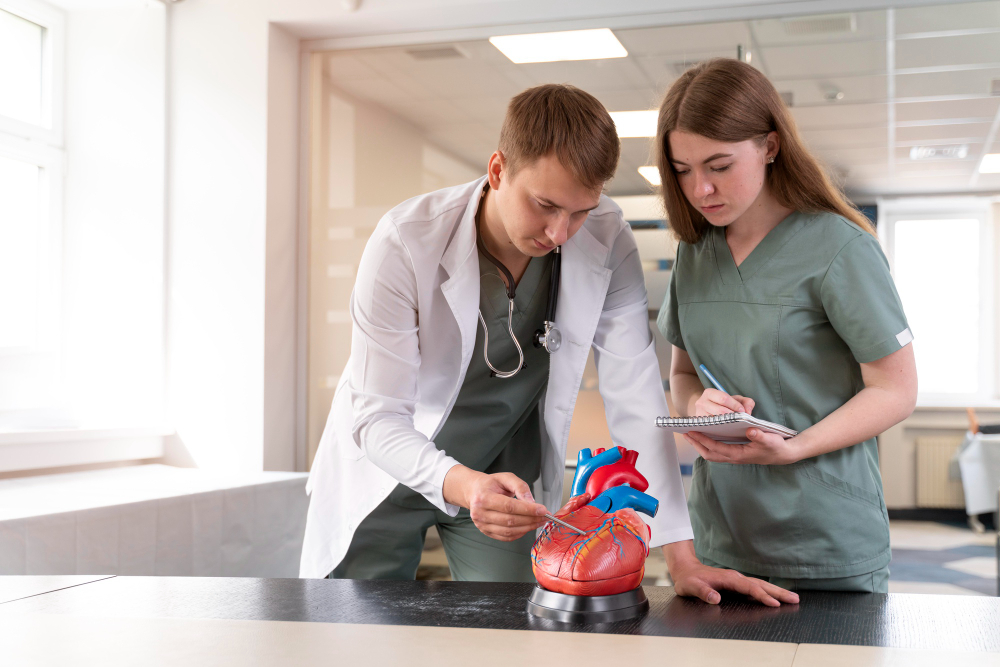
Health, Wellness & Spa
When to Visit a Cardiology Hospital
Heart health is one of the most crucial aspects of overall well-being. Yet many people tend to overlook early warning signs that may indicate an underlying heart issue. Visiting a cardiology hospital in Dubai at the right time can make a significant difference not only in managing your heart condition but also in preventing serious complications like heart attacks or strokes. In this blog, we will explore the common signs and symptoms that suggest it's time to see a cardiologist and how timely medical attention can safeguard your heart health.
Symptoms of Heart Disease that you Shouldn't Ignore
- Persistent Chest Pain or Discomfort
It is one of the most common and alarming symptoms associated with heart problems. While not every chest pain means a heart attack, pain, pressure, or tightness in the chest, especially during stress, should never be ignored. You should visit a cardiologist immediately if you experience squeezing or a heavy feeling in your chest or discomfort that worsens with physical activity.
- Shortness of Breath or Difficulty Breathing
Feeling breathless even after light activity, climbing stairs, or while lying flat may indicate your heart is not pumping effectively. This can be an early sign of heart failure or coronary artery disease. If you notice frequent shortness of breath, make sure to visit a cardiologist to rule out heart-related causes. Timely assessment can prevent the condition from progressing to a more serious stage.
Occasional skipped beats can be harmless, but persistent irregular heartbeats require medical evaluation. Conditions such as atrial fibrillation can increase the risk of blood clots, stroke, and heart failure if left untreated. A good hospital has the tools to monitor your heart rhythm using ECGs. This will help specialists determine whether your palpitations are normal or need treatment.
- Swelling in the Legs, Ankles, or Feet
Swelling, also known as oedema, can be a sign that your heart is not circulating blood properly. This causes fluid buildup in the body. A persistent swelling in the lower limbs, especially if accompanied by shortness of breath or fatigue, can be a sign of heart failure. A cardiologist will perform tests to assess heart function and provide medications to help reduce blood retention.
- Unexplained Fatigue or Dizziness
Constant tiredness or dizziness without an obvious reason can be a link to heart conditions such as arrhythmias, valve disorders, or heart failure. This happens when the heart cannot pump enough oxygen-rich blood to the body. If you usually feel exhausted after minimal activity, it is important to seek medical attention for further evaluation.
The Importance of Timely Cardiac Care
Heart conditions often develop silently over time. Delaying medical attention can lead to severe complications such as heart attacks, strokes, or heart failure. Early detection and timely treatment will help you prevent any serious damage. A good cardiology hospital will offer you comprehensive services from preventive screening to advanced interventional care. With access to modern technology and specialised heart teams, these hospitals will make sure that they provide you with an accurate evaluation and personalised treatment plans to make your journey smoother.
Conclusion
Visiting a good cardiology hospital at the right time can make a life-saving difference by ensuring early diagnosis and timely treatment. In the event of sudden chest pain or breathlessness, make sure to seek help at an emergency hospital. These facilities are equipped with advanced cardiac units, trained specialists, and a 24/7 monitoring system to handle critical heart emergencies efficiently. With regular checkups, a balanced lifestyle, and access to professional cardiac care, you can significantly reduce your risk of heart disease and enjoy a healthier life.